Related Research Articles
The history of Trinidad and Tobago begins with the settlements of the islands by Indigenous First Peoples. Trinidad was visited by Christopher Columbus on his third voyage in 1498,,and claimed in the name of Spain. Trinidad was administered by Spanish hands until 1797,but it was largely settled by French colonists. Tobago changed hands between the British,French,Dutch,and Courlanders,but eventually ended up in British hands following the second Treaty of Paris (1814). In 1889,the two islands were incorporated into a single political entity. Trinidad and Tobago obtained its independence from the British Empire in 1962 and became a republic in 1976.

The politics of Trinidad and Tobago function within the framework of a unitary state regulated by a parliamentary democracy modelled on that of the United Kingdom of Great Britain and Northern Ireland,from which the country gained its independence in 1962. Under the 1976 republican Constitution,the monarch was replaced as head of state by a President chosen by an electoral college composed of the members of the bicameral Parliament,consisting of the Senate and the House of Representatives.
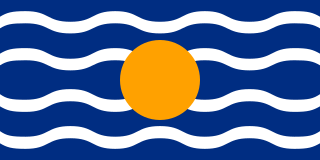
The West Indies Federation,also known as the West Indies,the Federation of the West Indies or the West Indian Federation,was a short-lived political union that existed from 3 January 1958 to 31 May 1962. Various islands in the Caribbean that were part of the British Empire,including Trinidad and Tobago,Barbados,Jamaica,and those on the Leeward and Windward Islands,came together to form the Federation,with its capital in Port of Spain,Trinidad and Tobago. The expressed intention of the Federation was to create a political unit that would become independent from Britain as a single state —possibly similar to Canada,the Federation of Australia,or the Central African Federation. Before that could happen,the Federation collapsed due to internal political conflicts over how it would be governed or function viably. The formation of a West Indian Federation was encouraged by the United Kingdom,but also requested by West Indian nationalists.

The president of the Republic of Trinidad and Tobago is the head of state of Trinidad and Tobago and the commander-in-chief of the Trinidad and Tobago Defence Force. The office was established when the country became a republic in 1976,before which the head of state was the Queen of Trinidad and Tobago,Elizabeth II. The last governor-general,Sir Ellis Clarke,was sworn in as the first president on 1 August 1976 under a transitional arrangement. He was formally chosen as president by an electoral college consisting of members of both houses of Parliament on 24 September 1976,which is now celebrated as Republic Day.
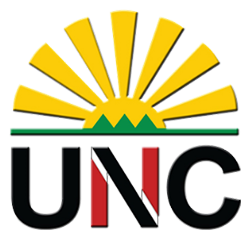
The United National Congress is one of two major political parties in Trinidad and Tobago and the current parliamentary opposition. The UNC is a centre-left party. It was founded in 1989 by Basdeo Panday,a Trinidadian lawyer,economist,trade unionist,and actor after a split in the ruling National Alliance for Reconstruction (NAR). After spending six years in opposition,the UNC won control of the government in 1995,initially in coalition with the NAR and later on its own. In the 2000 general election,the UNC won an absolute majority in the Parliament. In 2001,a split in the party caused the UNC to lose its parliamentary majority and control of the government. From 2001 to 2010,the UNC was once again Parliamentary Opposition party. In May 2010,the UNC returned to government as the majority party in the People's Partnership. The UNC's Political Leader,Kamla Persad-Bissessar,was sworn in as the first female Prime Minister of Trinidad and Tobago. Kamla Persad-Bissessar was Prime Minister from 2010 until 2015.

Arthur Napoleon Raymond Robinson,was a Trinidadian politician who was the third president of the country,serving from 19 March 1997 to 17 March 2003. He was also Trinidad and Tobago's third prime minister,serving in that capacity from 18 December 1986 to 17 December 1991. He is recognized for his proposal that eventually led to the founding of the International Criminal Court.

The People's National Movement (PNM) is the longest-serving and oldest active political party in Trinidad and Tobago. The party has dominated national and local politics for much of Trinidad and Tobago's history,contesting all elections since 1956 serving as the nation's governing party or on four occasions,the main opposition. As a result,it has sometimes been referred to as Trinidad and Tobago's "main political party". There have been four PNM Prime Ministers and multiple ministries. The party espouses the principles of liberalism and generally sits at the centre to centre-left of the political spectrum.

Trinidad and Tobago elects its House of Representatives on the national level. The head of government,the prime minister,is chosen from among the elected representatives on the basis of his or her command of the support of the majority of legislators. The Parliament of the Republic of Trinidad and Tobago has two chambers. The House of Representatives has 41 members,elected for a maximum five-year term in single-seat constituencies. The Senate has 31 members:16 government senators appointed on the advice of the prime minister,six opposition senators appointed on the advice of the leader of the opposition and nine so-called independent senators appointed by the president to represent other sectors of civil society. The president is elected for a five-year term by an electoral college consisting of the members of both houses of Parliament. Other elected bodies include the local government bodies in Trinidad and the Tobago House of Assembly,which handles local government in the island of Tobago and is entrenched in the constitution.

The House of Representatives is the elected lower house of the bicameral Parliament of Trinidad and Tobago,along with the President and Senate of Trinidad and Tobago. The House of Representatives sits at the Red House. It has 41 members,each elected to represent single-seat constituencies. The Parliament is elected with a five-year term,but may be dissolved earlier by the President if so advised by the Prime Minister.
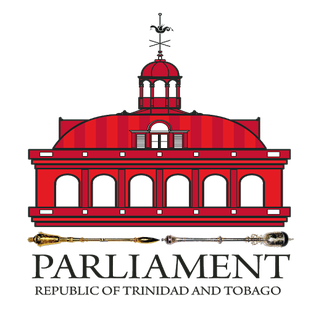
The Parliament of Trinidad and Tobago is the legislative branch of the Government of Trinidad and Tobago. The Parliament is bicameral. Besides the President of Trinidad and Tobago,it is composed of the House of Representatives,which is composed of the Speaker of the House of Representatives in addition to 41 directly elected members serving a five-year term in single-seat constituencies,and the Senate which has 31 members appointed by the President:16 Government Senators appointed on the advice of the Prime Minister,6 Opposition Senators appointed on the advice of the Leader of the Opposition and 9 Independent Senators appointed by the President to represent other sectors of civil society. It is at present the only parliament in the world with an incumbent female President,President of the Senate,Speaker of the House of Representatives and Leader of the Opposition and made history by appointing the Caribbean's first and only transgender parliamentarian on 15 February 2022. As of 20 April 2021,there are only 24 female members,or 32.9% and eight members born in Tobago or 11.0%.

The Senate of Trinidad and Tobago is the appointed upper house of the bicameral Parliament of Trinidad and Tobago,along with the President and House of Representatives of Trinidad and Tobago. The Senate currently sits at the Red House. The Senate has 31 members all appointed by the President:16 Government Senators appointed on the advice of the Prime Minister,6 Opposition Senators appointed on the advice of the Leader of the Opposition and 9 Independent Senators appointed on the discretion of the President from outstanding persons who represent other sectors of civil society. The presiding officer,the President of the Senate,is elected from among the Senators who are not Ministers or Parliamentary Secretaries. A senator must be at least 25 years old and a citizen of Trinidad and Tobago. The current President of the Senate is Senator Nigel de Freitas. As of 20 April 2021,there are only 13 female senators,or 41.9% and 6 Tobagonian senators or 19.4%. The Senate made history on 15 February 2022 by appointing Jowelle de Souza as an acting opposition senator,thus making her the Caribbean's first and only transgender parliamentarian.
Wendell Adrian Mottley ORTT is a Trinidad and Tobago economist,politician and athlete. Mottley served as Senator and member of the House of Representatives with the Trinidad and Tobago Parliament and was Minister of Finance from 1991 to 1995. He was an Ivy League sprinter,winning two Olympic medals in 1964.
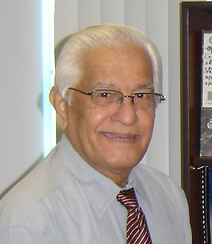
Basdeo Panday is a Trinidadian and Tobagonian lawyer,politician,trade unionist,economist,actor,and former civil servant who served as the fifth Prime Minister of Trinidad and Tobago from 1995 to 2001. He was the first person of Indian descent along with being the first Hindu to hold the office of Prime Minister of Trinidad and Tobago. He was first elected to Parliament in 1976 as the Member for Couva North,Panday served as Leader of the Opposition five times between 1976 and 2010 and was a founding member of the United Labour Front (ULF),the National Alliance for Reconstruction (NAR),and the United National Congress (UNC). He served as leader of the ULF and UNC,and was President General of the All Trinidad Sugar and General Workers' Trade Union.

Machel Jesus Montano is a Trinidadian soca recording artist and record producer. Known for his high energy,fast-paced,and often unpredictable on-stage performances,he is one of the genre's most popular artists.

Elizabeth II was Queen of Trinidad and Tobago from the independence of Trinidad and Tobago on 31 August 1962 until the country became a republic on 1 August 1976. Her constitutional role as head of state was delegated to a governor-general,who acted on the advice of government ministers.

Federal elections were held in the West Indies Federation for the first and only time on 25 March 1958. The result was a victory for the West Indies Federal Labour Party,which won 25 of the 45 seats in the House of Representatives.
Camille Robinson-Regis is a Trinidadian and Tobagonian lawyer and politician,representing the People's National Movement. She was first elected as a Member of Parliament in the House of Representatives for Arouca South in 1992 and is the current Member of Parliament for Arouca/Maloney. She is the Minister of Planning and Development,the Lady Vice-Chairman of the People's National Movement,and the Leader of Government Business in the House of Representatives.

Indirect presidential elections were held in Trinidad and Tobago on 19 January 2018.
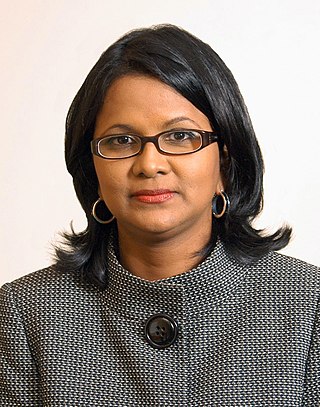
Christine Carla Kangaloo is a Trinidadian politician,who is the president of Trinidad and Tobago since 2023. She was president of the Senate of Trinidad and Tobago from 2015 until her resignation to run for president in 2023. She is the only person to serve as both President and Vice President of the Senate of Trinidad and Tobago,the first woman to serve as Senate Vice President and third woman to serve as acting President of Trinidad and Tobago and Senate President. She became the second woman to serve as President of Trinidad and Tobago upon her assumption of office on 20 March 2023. Kangaloo has served as an Opposition Senator,Minister in the Office of the Prime Minister,Minister of Legal Affairs and Minister of Science,Technology and Tertiary Education in previous People's National Movement governments.

Indirect presidential elections were held in Trinidad and Tobago on 20 January 2023.
References
- ↑ "Danny Montano > Member of the 8th Republican Parliament". Senate of Trinidad and Tobago . Retrieved 3 January 2010.